The role of earth sciences in providing solutions to the major challenges recognised in the UN Sustainable Development Goals and the Sendai Framework for Disaster Risk Reduction is critical to underpinning economic development.
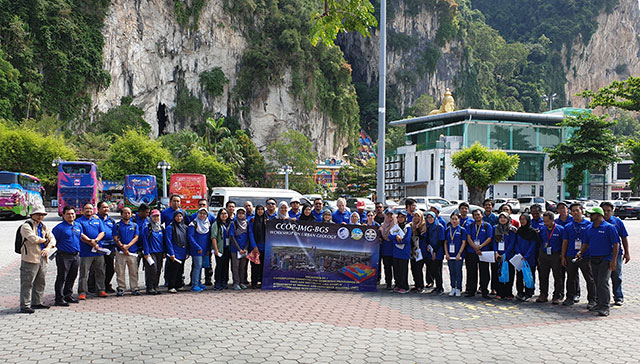
Participants of the CCOP-JMG-BGS Urban Geology Workshop at Batu Caves, Kuala Lumpur in February 2019. BGS © UKRI.
Many of these challenges, including food and water security, urbanisation, energy poverty, resilience to natural hazards and climate change, span the interface between Earth and human systems.
For example, understanding the effects on both human welfare and the environment of the exploration, analysis and extraction of natural resources (energy, water, minerals and food) is critical to promote security of supply. Similarly, understanding dynamic natural earth hazards (landslides, earthquakes and volcanic eruptions) that directly affect lives and livelihoods and pose major welfare challenges also requires informed citizens and effective communications to deliver better preparedness and resilience to sudden change.
Our vision and research themes
Working collaboratively with countries on the DAC list of ODA recipients, the 2017–2020 BGS ODA programme builds upon and integrates our recent and ongoing research on:
- groundwater
- soils
- minerals
- energy
- urban planning
- environmental modelling
- geohazards
- catchments and observatories
Our vision is to deliver new research, underpinning datasets and capacity building via three research platforms working across 13 countries. Our engagement will be participatory, characterised by a collaborative approach, with the research being co-designed and developed with stakeholders to address development priorities and need.
We will seek to build new links with the UK research base and use our platforms to support bids into Global Challenges Research Fund (GCRF) and Newton Fund opportunities.
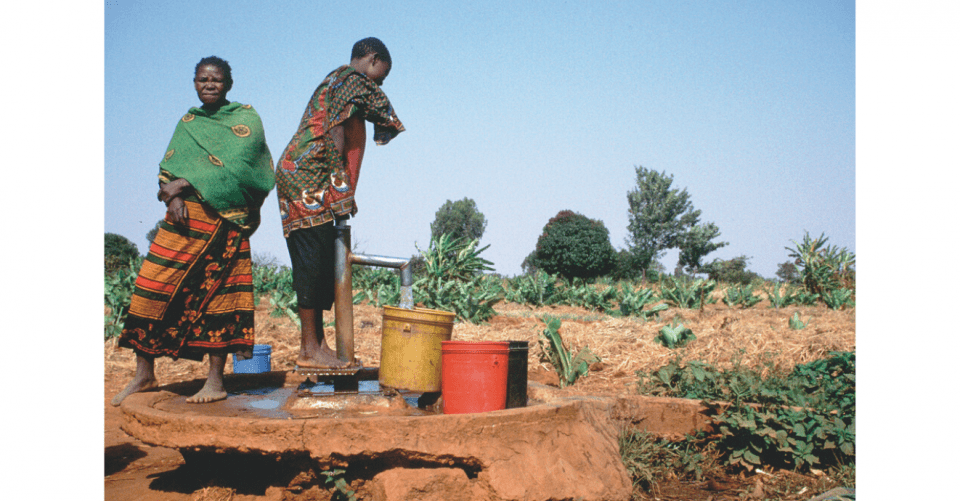
Pumping drinking water from a shallow groundwater source. BGS © UKRI.
Our research platforms
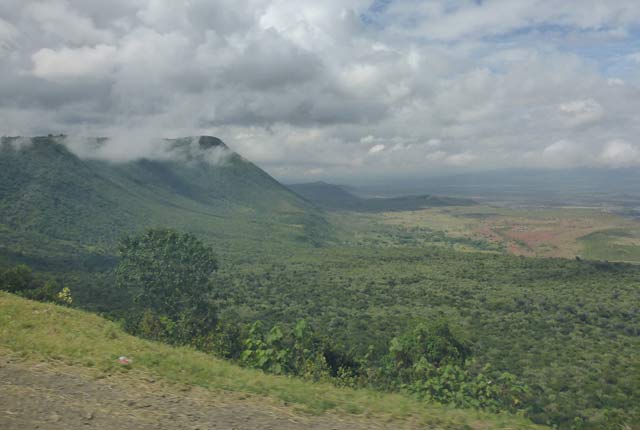
Integrated resource management in Eastern Africa
Our current activities build on the BGS’s extensive research experience in this region, contributing to welfare and future economic growth by the responsible use of natural resources.
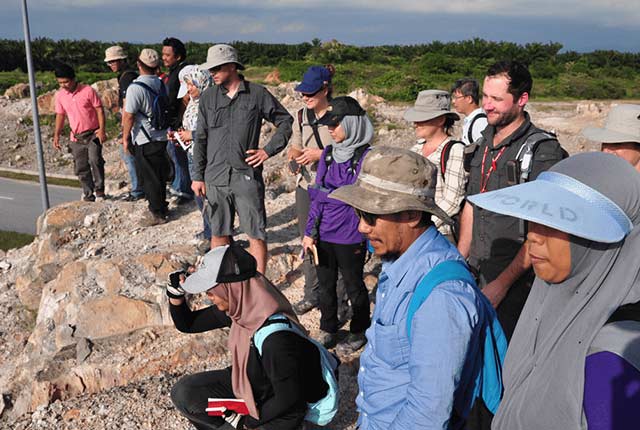
Resilience of Asian cities
Our research aims to improve city resilience by integrating geology into urban subsurface planning and urban-catchment science in India and south-east Asia
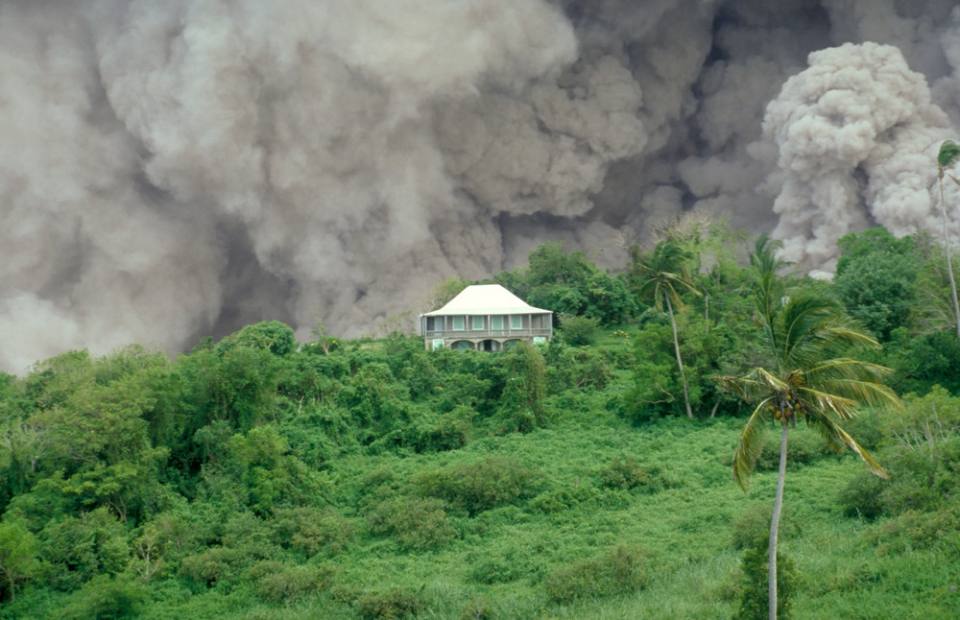
Global geological risk
Our research focuses on characterising complex, multi-hazard processes with the aim of improving resilience of communities to hazards.
Relative topics
You may also be interested in
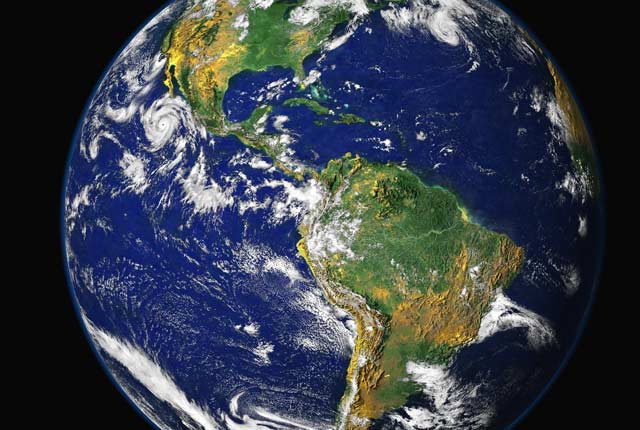
International geoscience
BGS is active across the globe delivering institutional strengthening programmes and applied research projects across a wide variety of sectors.
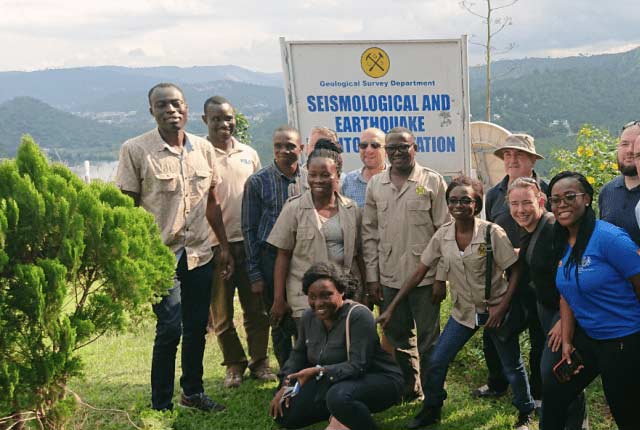
Partnerships for Development
The main aim of our Partnerships for Development work was to support our partner countries in developing sustainable extractives sectors.
Related news
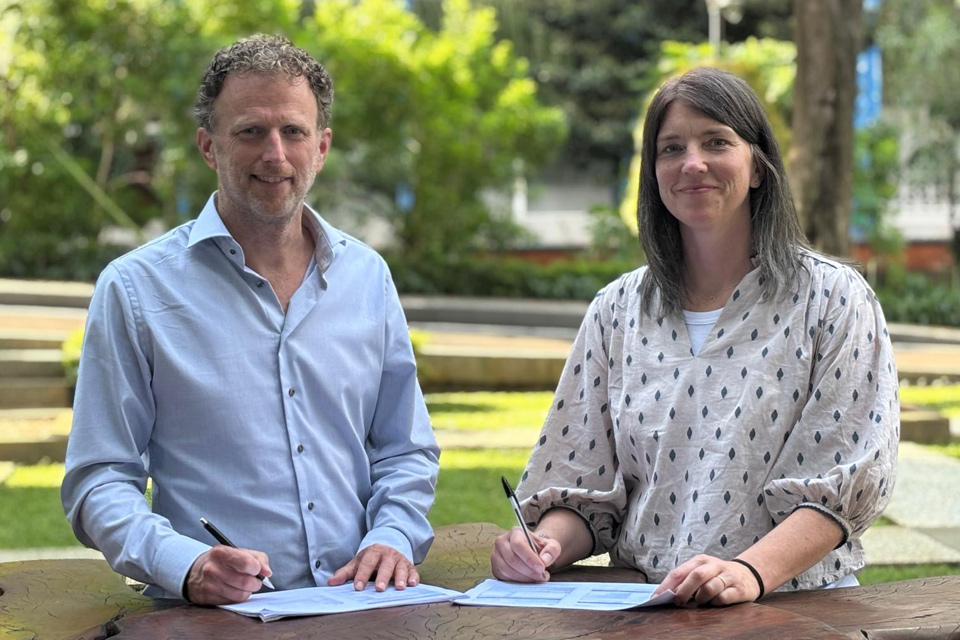
New collaboration aims to improve availability of real-time hazard impact data
19/06/2025
BGS has signed a memorandum of understanding with FloodTags to collaborate on the use of large language models to improve real-time monitoring of geological hazards and their impacts.

BGS scientists join international expedition off the coast of New England
20/05/2025
Latest IODP research project investigates freshened water under the ocean floor.
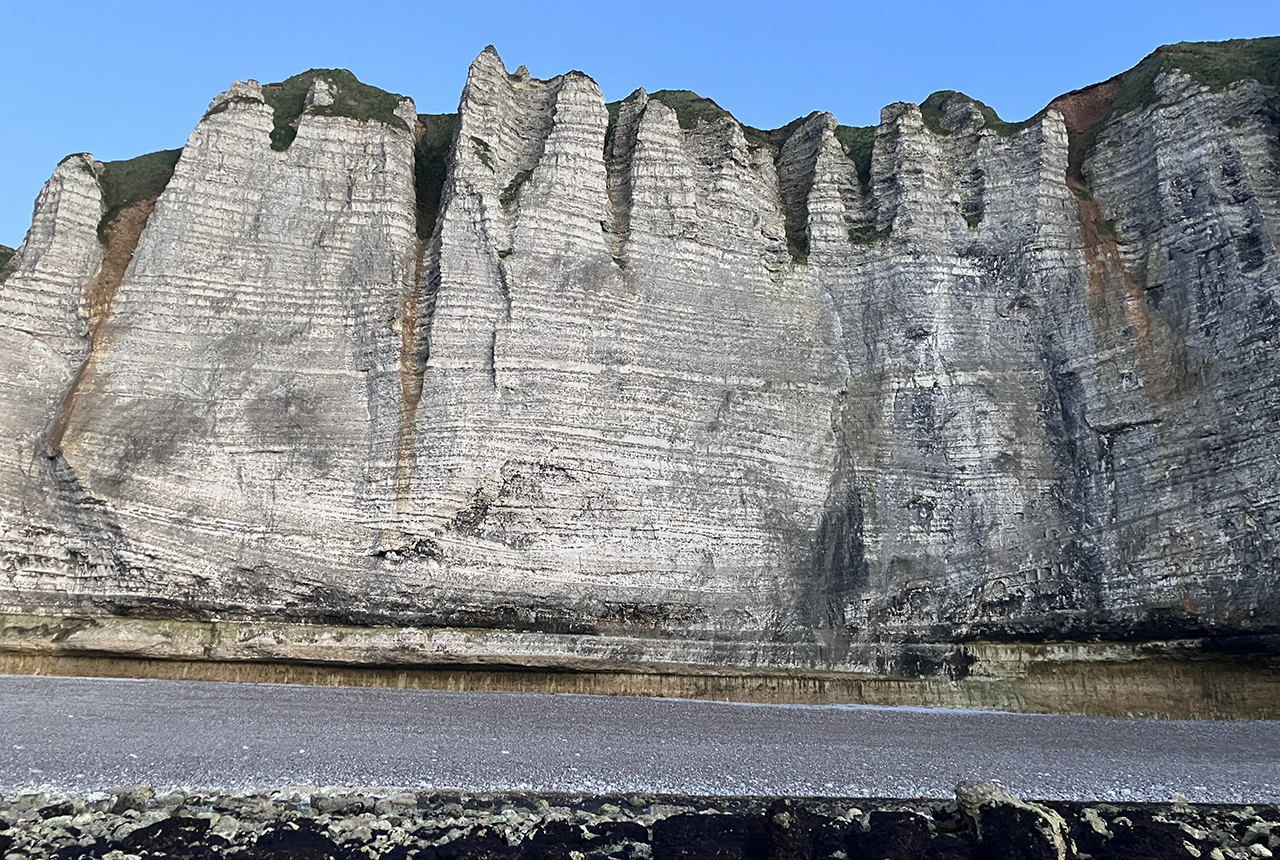
Geology sans frontières
24/04/2025
Geology doesn’t stop at international borders, so BGS is working with neighbouring geological surveys and research institutes to solve common problems with the geology they share.
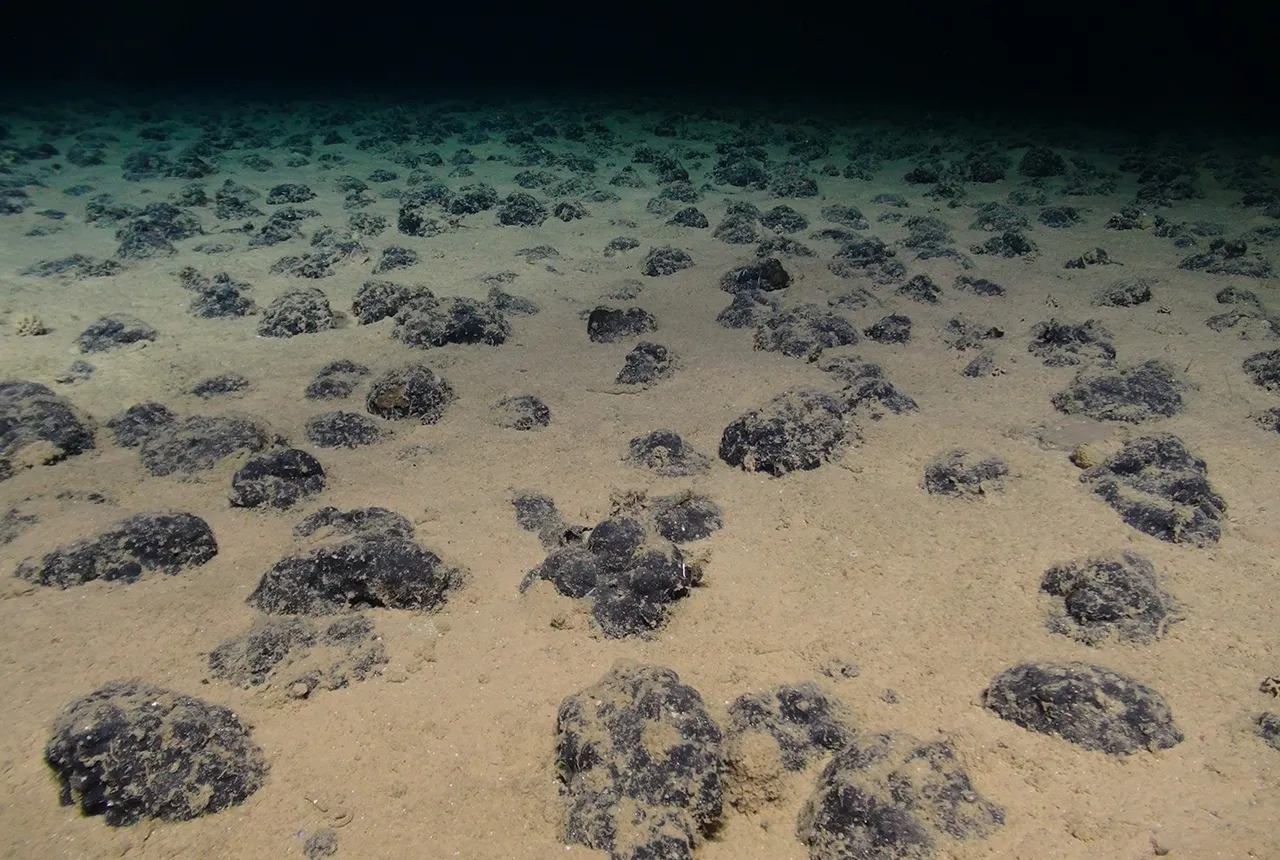
New study reveals long-term effects of deep-sea mining and first signs of biological recovery
27/03/2025
BGS geologists were involved in new study revealing the long-term effects of seabed mining tracks, 44 years after deep-sea trials in the Pacific Ocean.
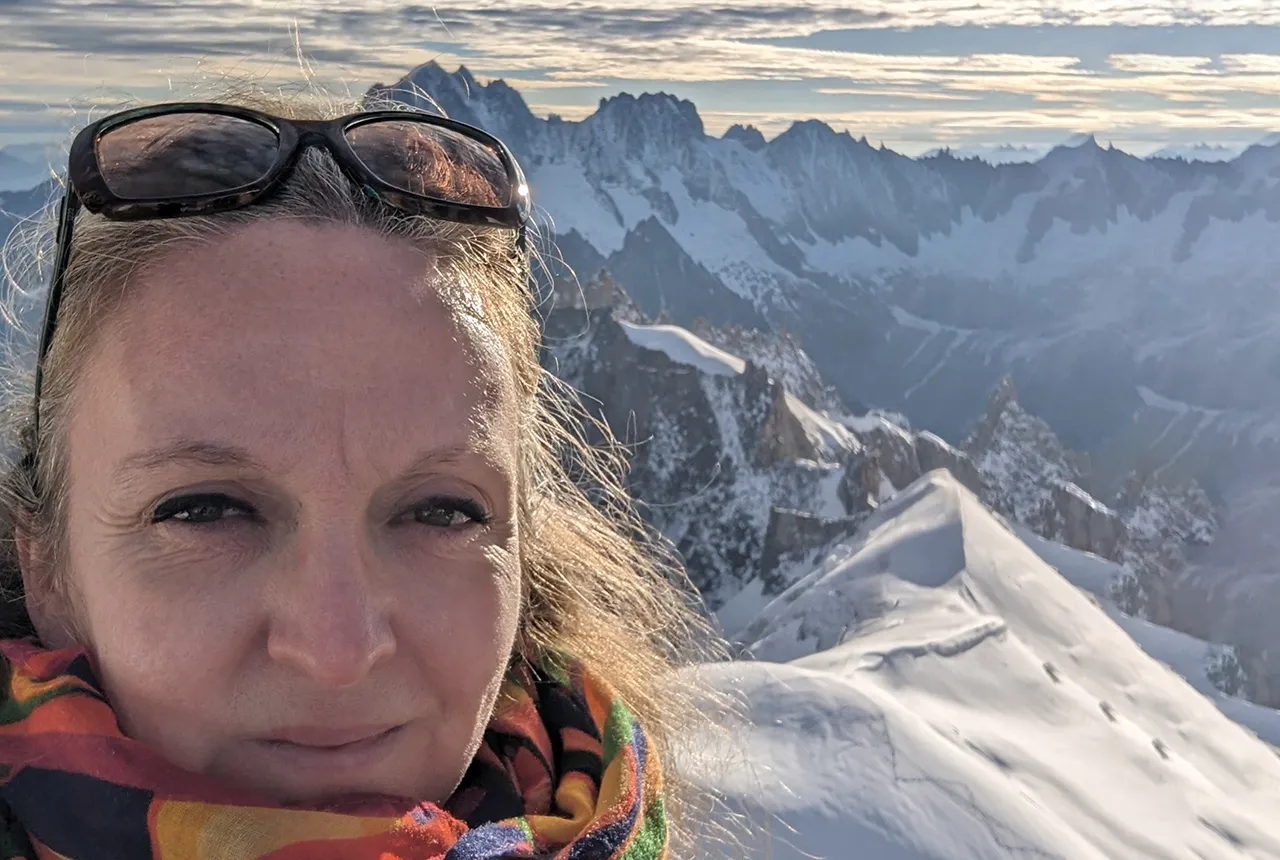
BGS announces new director of its international geoscience programme
17/03/2025
Experienced international development research leader joins the organisation.
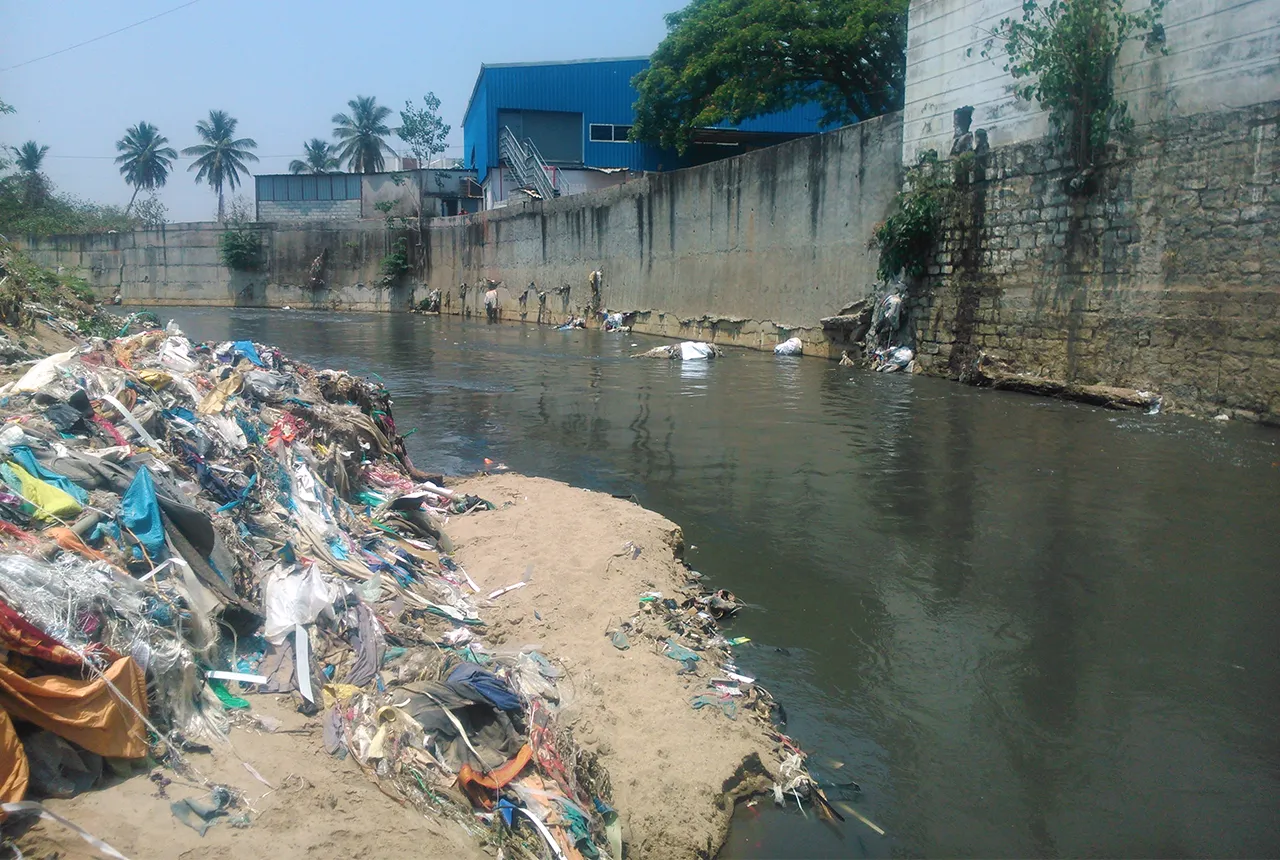
Presence of harmful chemicals found in water sources across southern Indian capital, study finds
10/03/2025
Research has revealed the urgent need for improved water quality in Bengaluru and other Indian cities.
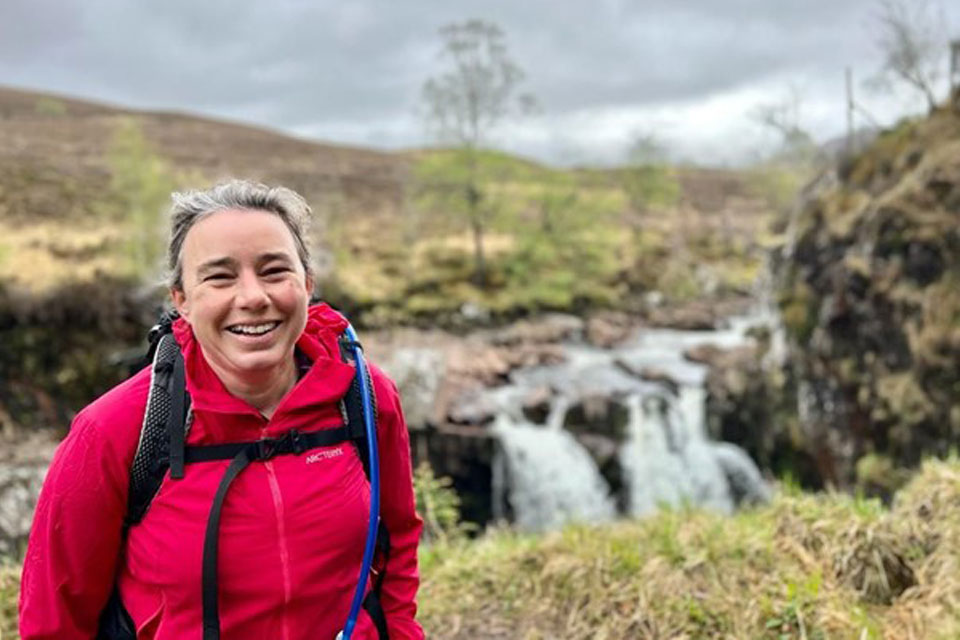
Dr Kathryn Goodenough honoured with prestigious award from The Geological Society
27/02/2025
Dr Kathryn Goodenough has been awarded the Coke Medal, which recognises those who have made a significant contribution to science.
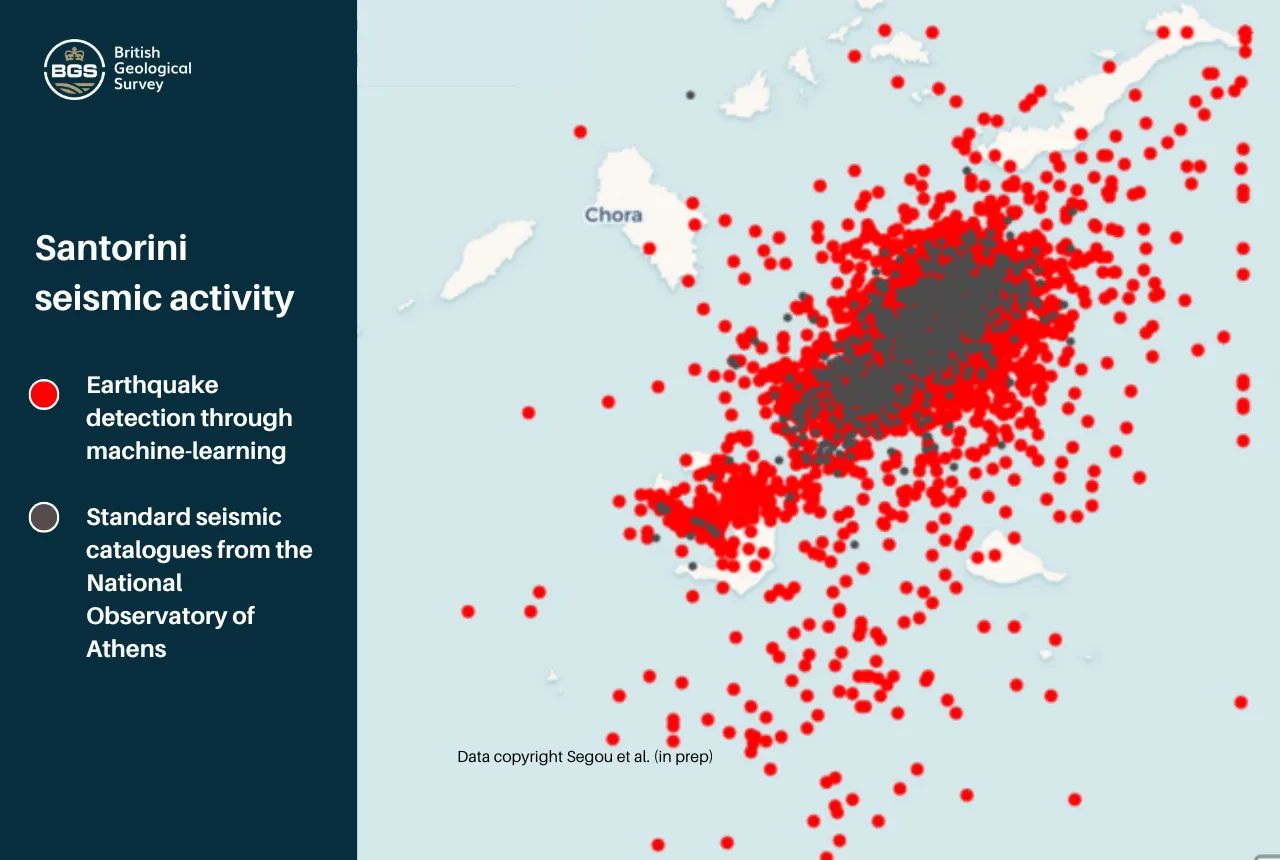
Artificial intelligence is proving a game changer in tracking the Santorini earthquake swarm
07/02/2025
Scientists are harnessing the power of machine learning to help residents and tourists by detecting thousands of seismic events.
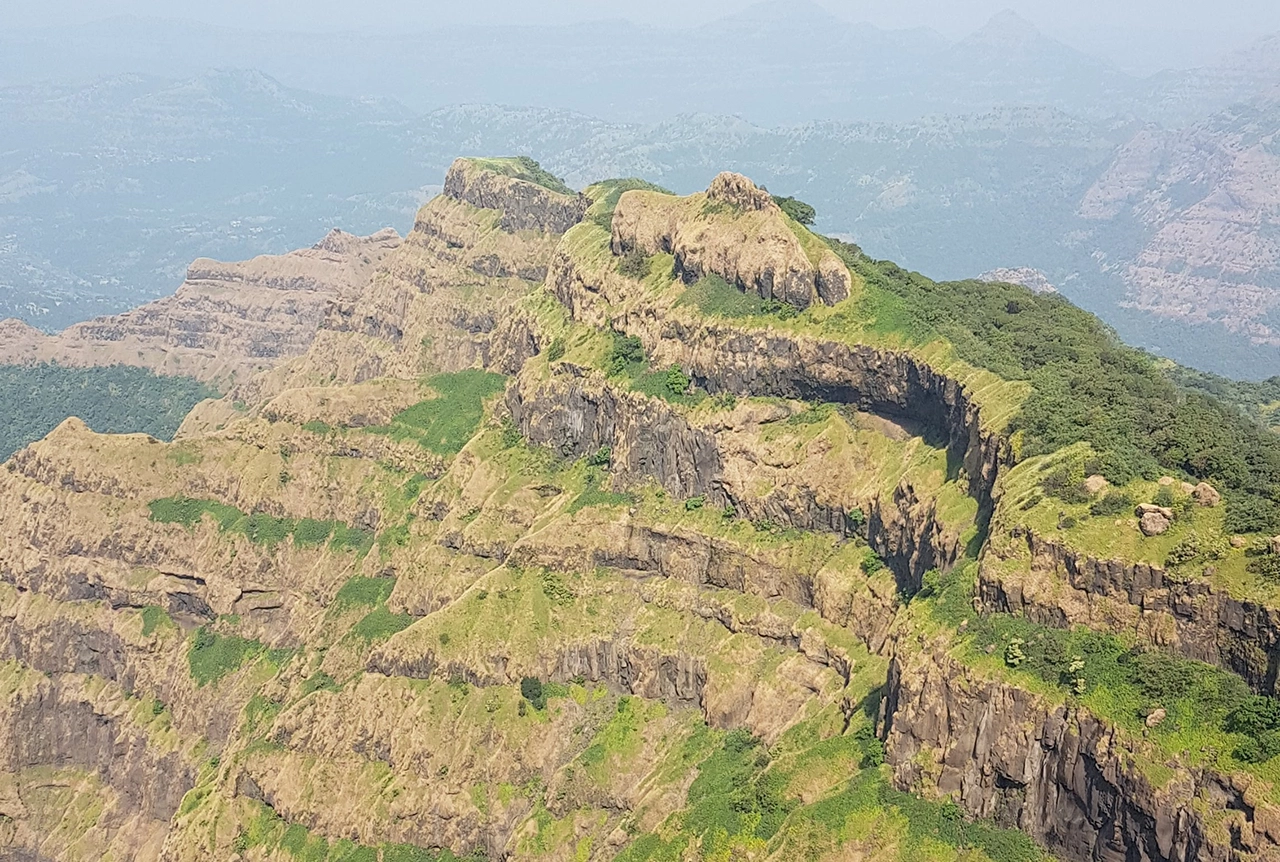
Could underground disposal of carbon dioxide help to reduce India’s emissions?
28/01/2025
BGS geologists have partnered with research institutes in India to explore the potential for carbon capture and storage, with an emphasis on storage.
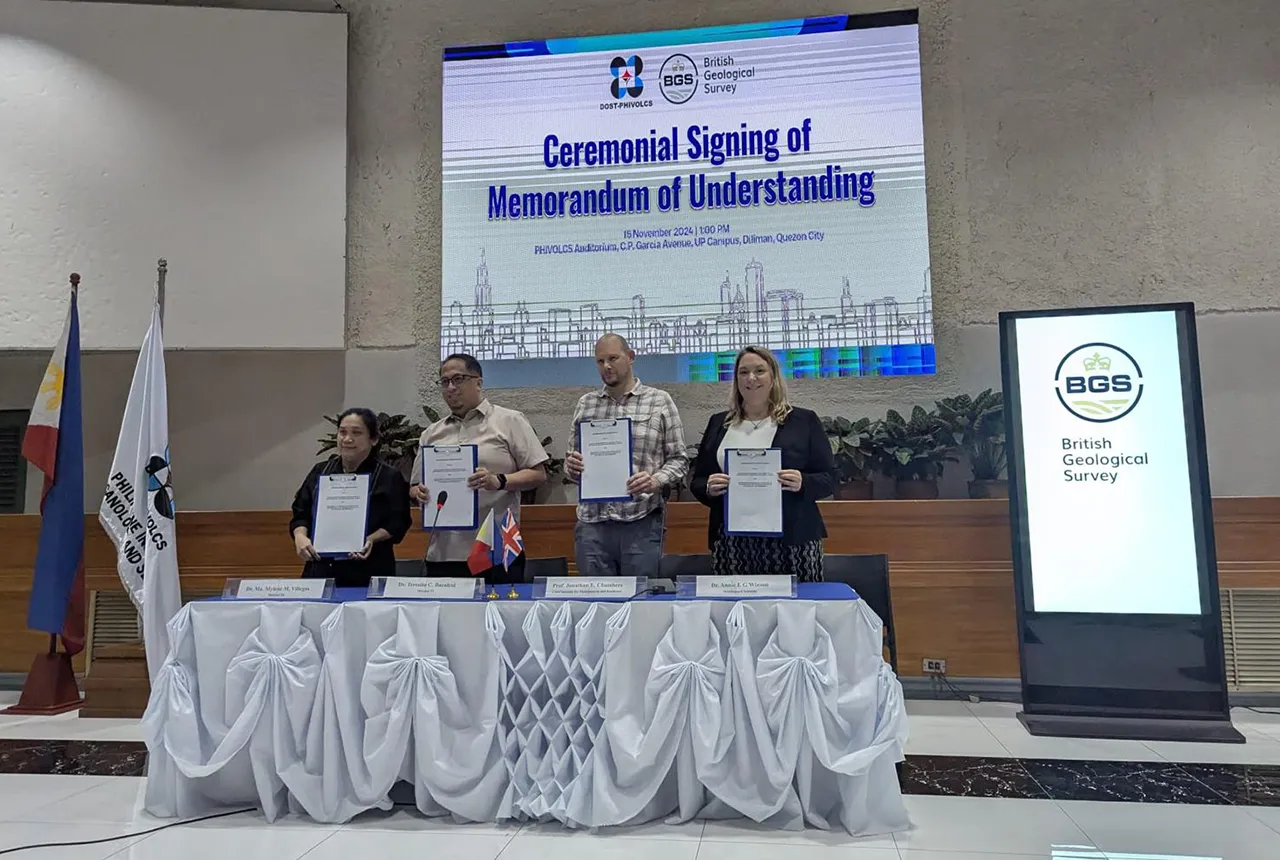
New Memorandum of Understanding paves the way for more collaborative research in the Philippines
21/01/2025
The partnership will focus on research on multi-hazard preparedness within the country.
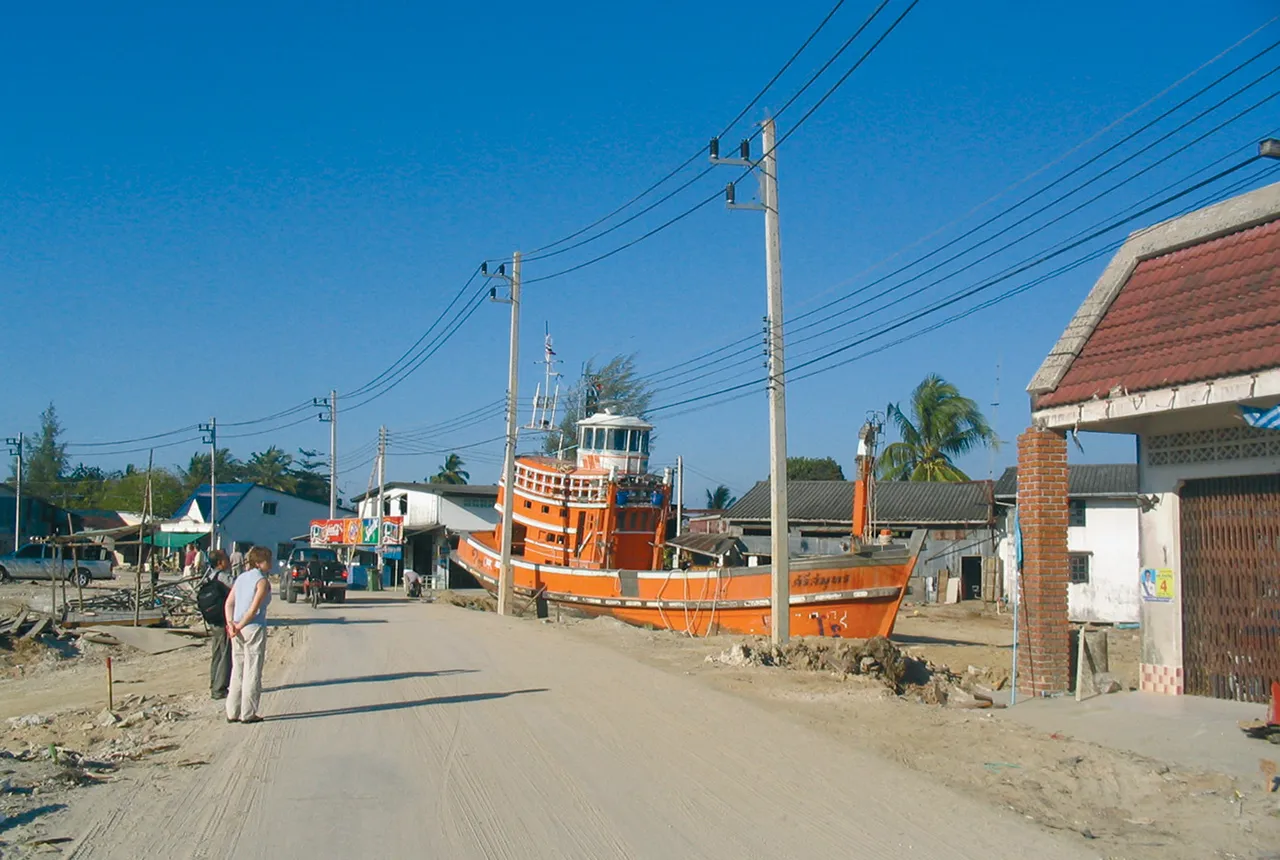
Twenty years on: the Indian Ocean earthquake and tsunami
26/12/2024
Boxing Day 2024 marks 20 years since the Indian Ocean earthquake and tsunami. Prof David Tappin reflects on the disaster and discusses what we have learnt since 2004.
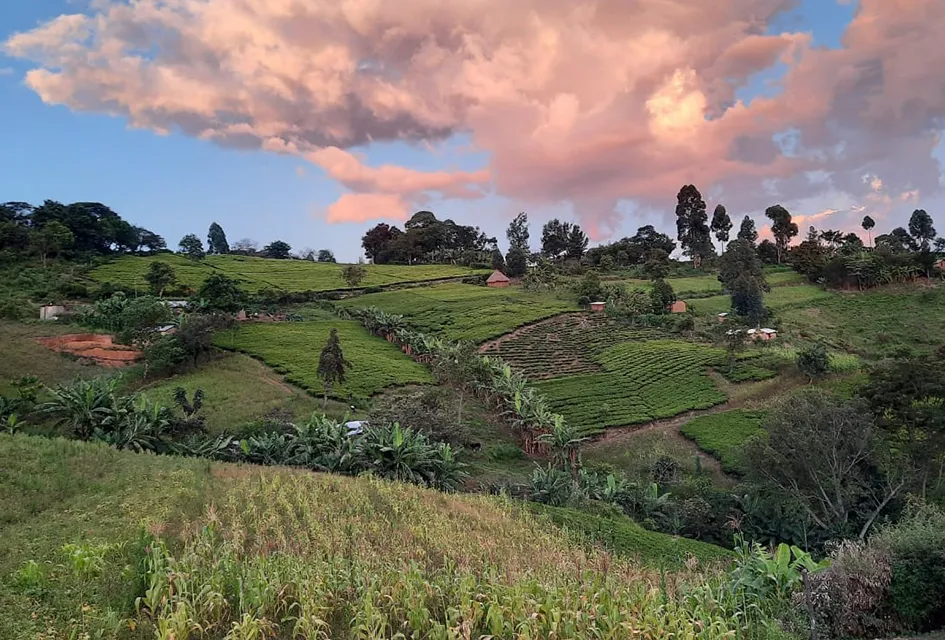
Dynamics of land-to-lake transfers in the Lake Victoria Basin
09/12/2024
In June 2024, a UK/Kenya research team shared research findings from a collaborative, four-year field and experimental programme within Kenya.



